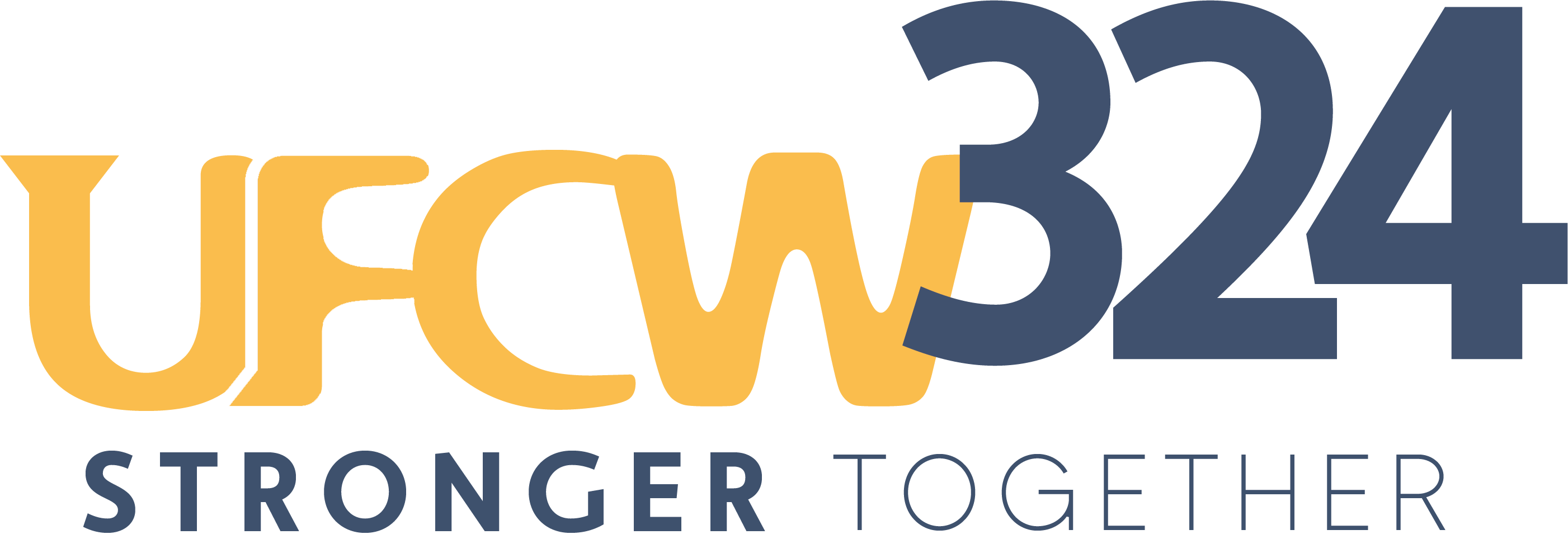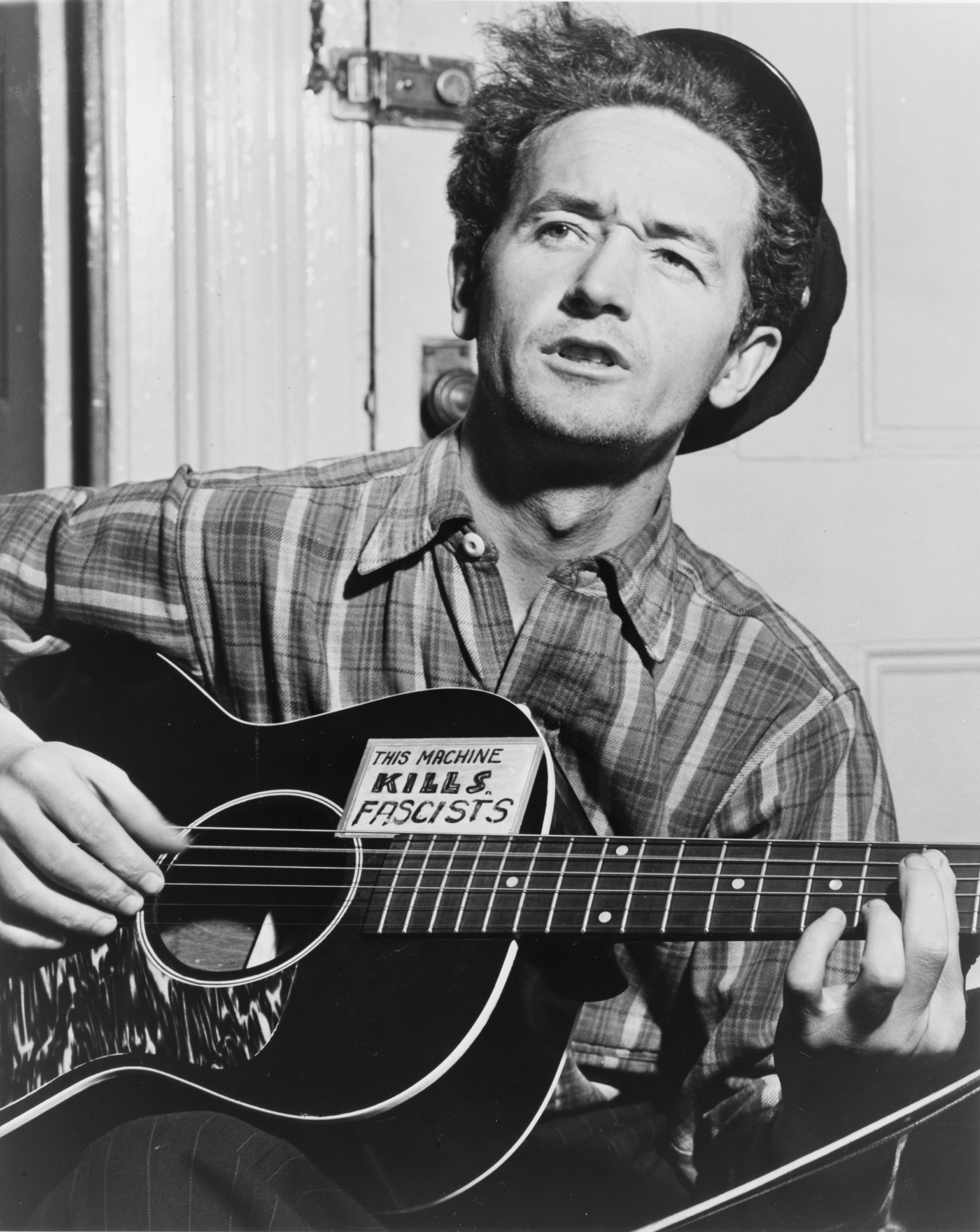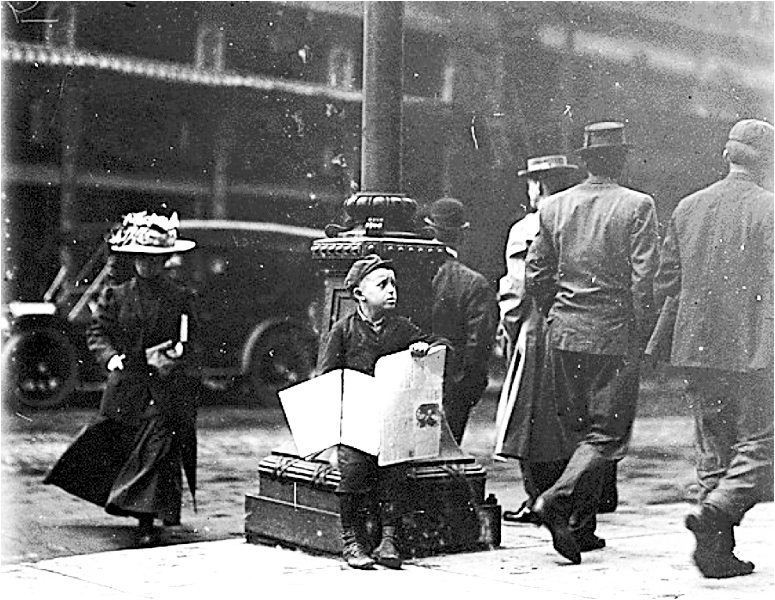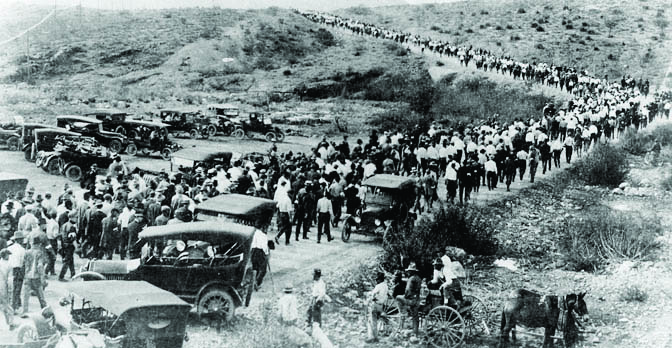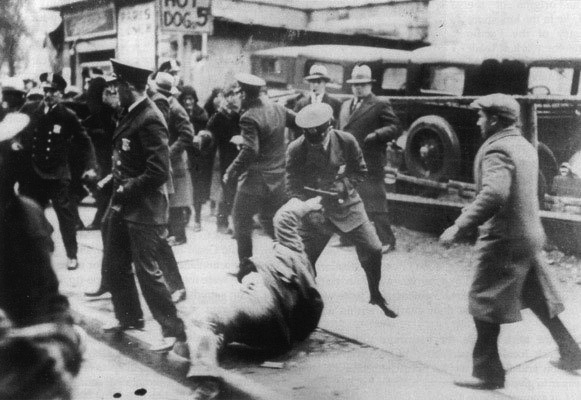Woody Guthrie: This Song Was Made for You and Me
Throughout our history, a specific lexicon of songs has been burned into our nation’s consciousness. These songs have acted as a link, unifying generations through a common culture. Among these ballads one song in particular, This Land is Our Land, has come to represent the heart and soul of the American spirit. However, few realize the song’s creation had less to do with national pride and more to do with protesting another one of America treasured hymns, God Bless America.
This Land is Our Land was a response to a period of time when the American worker faced undue hardship while the wealth of the nation was concentrated into fewer and fewer hands.
This Land Is Your Land was written by Woody Guthrie, one of the most influential songwriters and performers of American folk music. Both his life and music were shaped by his first-hand experience of the economic and environmental hardships of the Dust Bowl era during the Great Depression.
In this period, hundreds of thousands of families were forced to leave their homes from regions affected by severe drought and poverty. Many found jobs as agricultural workers but were paid starvation wages. Guthrie’s ability through song to account for the experiences of these migrant families earned him the name “the Dust Bowl Troubadour.”
In 1938, a version of Irving Berlin’s God Bless America performed by Kate Smith was released and routinely played on the airwaves. Guthrie was bothered by the song and felt that the blissful adoration expressed in its lyrics ignored the reality of social problems that most Americans experienced during the Great Depression.
In 1940, Guthrie began to write a response to Berlin’s song by first taking the melody from a Baptist hymn recorded by another folk band, the Carter Family. The act of borrowing melodies was very common in the folk community and was something Guthrie did often.
He felt that if people knew the tune, then they were already half way to knowing the song; it was only a matter of learning the lyrics. Guthrie’s lyrics expressed his belief that working people should have the same rights as the wealthy.
Guthrie originally entitled the song God Bless America for Me, which was the last line of each verse. But by the time the song was recorded in April of 1944, he changed the line to “This land was made for you and me.”
Since then, This Land is Your Land has been recorded by numerous artists, including: Bing Crosby, Harry Belafonte, Bob Dylan, The Counting Crows and Pete Seeger. During Ronald Reagan’s 1984 re-election campaign the song was used as his campaign theme. Calling Reagan’s use of the song “sanctimonious,” Bruce Springsteen began performing it as a way to salvage Guthrie’s true message.
Schoolchildren have been singing This Land is Your Land for generations. It is a staple of the American experience and a reminder of a time when our youthful dreams felt possible and hope for a better world was still within reach. It’s no wonder this song still resonates in the heart and soul of most Americans today.
But like most folk songs, the ballad tells the tale of the forgotten and the unmentioned, the story of the reality of the American experience.
The universal embrace of the song is evidence of Guthrie’s genius: Only he could compose a song loved by millions for seemingly opposite reasons. Many consider This Land is Your Land to be a subtle, but powerful stand against injustice while others hear music and lyrics steeped in hope and optimism. Woody Guthrie has left Americans with one of the greatest gifts a musician can give, a song all of us can call our own.
